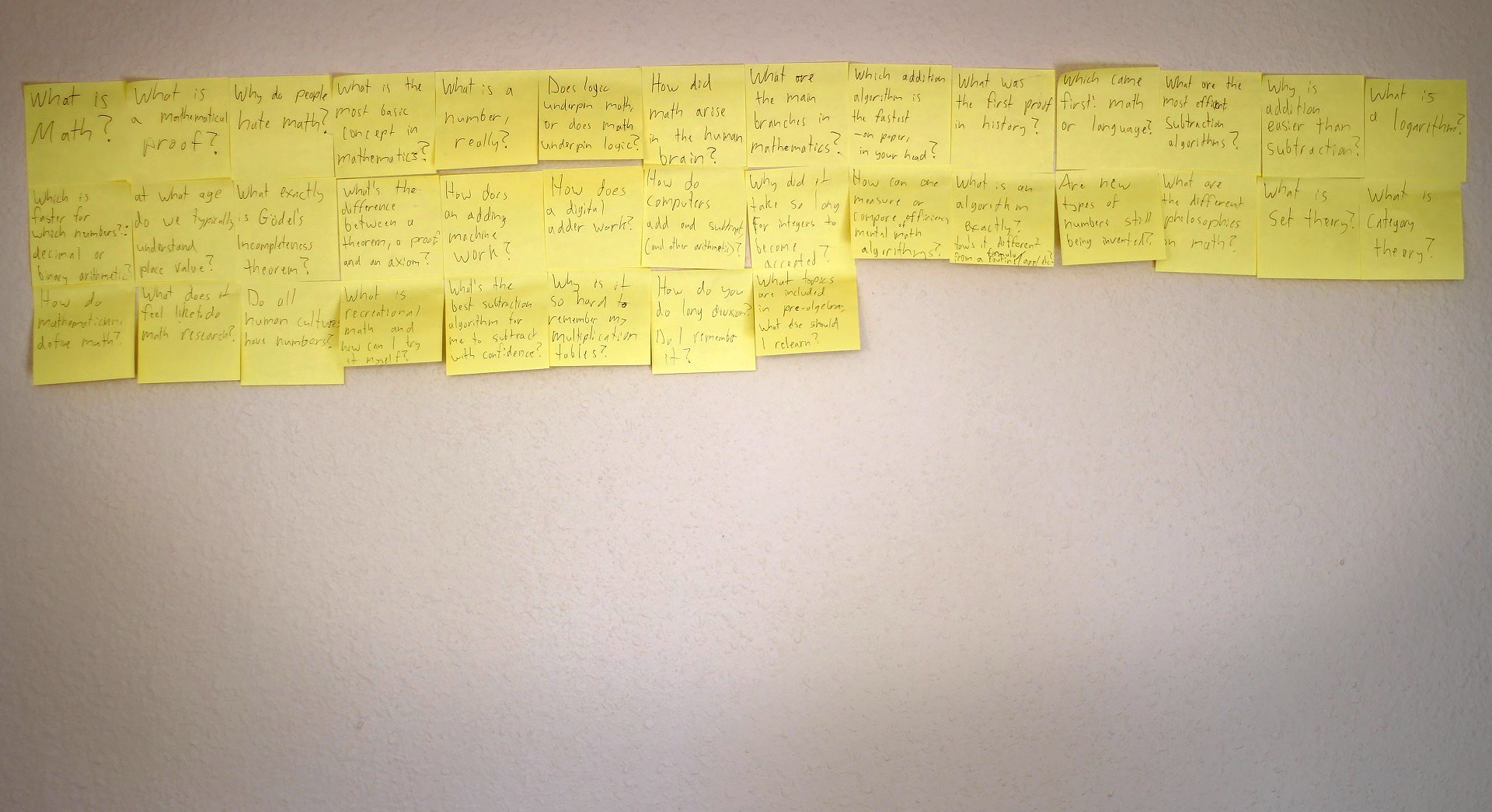Today I gathered up my math questions and stuck them on my living room wall – now dubbed the Wall of Questions! I wrote a bit about the idea on my blog post for day 1.
Wall of Questions
I’m not worried about answering these questions just yet. (Besides, I’ve already half-answered a few of them). The point is just to keep track of them (and decorate the walls of my livingroom). Questions written down so far:
- What is math?
- What is a mathematical proof?
- Why do people hate math?
- What is the most basic concept in mathematics?
- What is a number, really?
- Does logic underpin math or does math underpin logic?
- How did math arise in the human brain?
- What are the main branches in mathematics?
- Which addition algorithm is the fastest – on paper, in your head?
- What was the first proof in history?
- Which came first: math or language?
- What are the most efficient subtraction algorithms?
- Why is addition easier than subtraction?
- What is a logarithm?
- Which is faster: decimal or binary arithmetic?
- At what age do we typically understand place value?
- What exactly is Godel’s incompleteness theorem?
- What’s the difference between a theorem, a proof and an axiom?
- How does an adding machine work?
- How does a digital adder work?
- What topics are included in pre-algebra; what else should I relearn?
- Why did it take so long for integers to become accepted?
- How can you measure or compare the efficiency of mental math algorithms? What is an algorithm exactly? How’s it different from a formula or a routine?
- Are new types of new types of numbers still being invented?
- What are the different philosophies in math?
- What is set theory?
- What is category theory?
- How do mathematicians define math?
- What does it feel like to do math research?
- Do all human cultures have numbers?
- What is recreational math and how can I try it/enjoy it?
- Why is it so hard to remember my multiplication tables?
- How do you do long division? Do I remember it?
- How do computers add and subtract (and do other calculations)?
Time breakdown
- Video production time: 1 hour 27 min
- Script writing/preparation: 3 min
- Filming/setup: 24 min
- Video editing: 45 min
- Publishing: 15 min
- Math study time: 39 min
- Practice problems: none
- General research: 39 min
Credits
- Music: “Lady Be Good” by Django Reinhardt and Stephane Grappelli (Public Domain)
